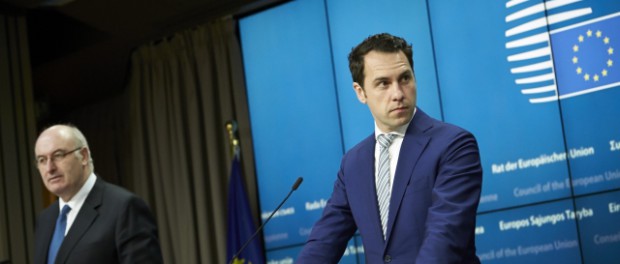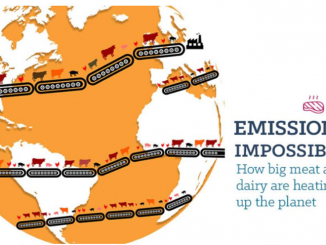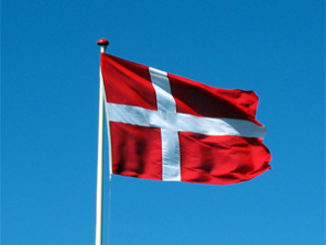UPDATED with reactions from EMB and CEJA 11.48CET on 15/03/2016
“A reduction of supply is necessary for the markets to restore”. That’s according to Martijn Van Dam, Agriculture Minister of the Netherlands, which currently holds the EU presidency. He was speaking after the AGRIFISH Council meeting Monday which saw the announcement of a range of exceptional measures for the dairy and pig meat sectors.
Chief among these was the application of “voluntary supply management” or Article 222: In a statement the Commission said that it “will activate, for a limited period of time, the possibility to enable producer organisations, interbranch organisations and cooperatives in the dairy sector to establish voluntary agreements on their production and supply.”
Speaking after the meeting (see video above), Commissioner Hogan announced “a new state aid of EUR 15,000 per farmer per year if member states wish”. This could be used for “voluntary supply management and compensating farmers” to help reduce supply, he added.
According to the Commission “Article 222 from the Common Market Organisation (CMO), which is specific to the agricultural sector”…”can be applied in case of severe imbalance in the market.” Article 222 “was included by the legislators in the 2013 CAP reform but never used before.”
Despite concern over reaching the intervention ceiling soon, the Irishman nevertheless announced “doubling the ceilings for skimmed milk power 109,000 tonnes to 218,000” and to increasing ceilings for butter “from 60,000 to 100,000 tonnes”.
A new private storage aid scheme for pigmeat was announced, though the details have yet to emerge of this, including when it will be introduced.

Commissioner Hogan also pointed to Member State flexibility regarding Rural Development Plans: “they can modify those programmes once per year, they can speed up those processes, they can move money, or assistance from one particular sector to another, one commodity to another” he said, adding “income stabilisation and voluntary coupling tools are still available.”
Other measures were announced, including the establishment of a meat market observatory, those most other announcements were not in fact full commitments. These include statements on trade (Russia, TTIP); promotional, investment and export work; continued measures for fruits and vegetables.
UPDATE (11.48 CET) Reactions
EMB European Milk Board
“It is clear that measures aiming at increasing intervention volumes and selectively implemented production cuts will not relieve the dramatic situation and thus not put a halt to price slumps. The increase of production volumes in the coming months will quickly neutralise the potential effect that these measures could have. “These measures cannot put an end to the crisis on the dairy market”, says EMB-President Romuald Schaber. “For instance, we just received the information that in Germany some farmers will only receive 21 cents/kg for the milk they sold in February. Such a downward trend cannot be stopped by such soft measures.”
In particular the measure of voluntary production cuts – which according to article 222 of the CMO 1308/2013 should be implemented on the level of producer and inter-branch organisations and is now to be extended to cooperatives – might be well-intentioned but reveals significant shortcomings. The problem in this case is that the regulation of volumes is not coordinated on a central EU level, so that it cannot relieve the market as a whole. Furthermore, it does not foresee a cap of production volumes for all producers during the period of voluntary production cuts. As a result, the positive effect reached through the reduction of volumes will immediately be counteracted by the increase in production of other producers.
If producer organisations and cooperatives have the choice whether or not to implement production cuts, their willingness to participate will vary significantly. There are concrete examples for this from Switzerland, where producer organisations who implemented production cuts lost members, as in other producer organisations no restrictions in production were to be expected.
It is no longer acceptable that the Commission and the Council put forward only half-baked solutions. The problem concerns the European market as a whole. Measures thus also need to be adapted to the market as a whole.
The responsibility towards the market needs to be in the hand of each producer. In other words, when a call for tenders for an EU-wide voluntary restraint of production is published, each producer can decide individually whether or not he wants to reduce his production in exchange for a bonus payment. If after three months at the latest no clear effect of volume reductions is to be observed, a mandatory EU-wide reduction of production has to apply.”
CEJA European Council of Young Farmers
“In the face of the current agricultural market crisis that the European Union (EU) finds itself in, CEJA strongly welcomes the progress made during the Agriculture Council meeting today and applauds the Commission, Dutch Presidency and Member States for the proposals submitted and the work carried out to find agreement on a number of them. However, despite the progress made by today’s Council, CEJA calls for immediate and effective implementation of these decisions; for increased resources to prioritise the development of financial instruments under the European Investment Bank (EIB); and for a swift mobilisation of resources to ensure that adequate funds are available to finance the planned measures without dipping into the crisis reserve, which should only be used as a last resort.”
More
Questions and Answers at press conference after meeting
Livestock market problems explained in one minute
Diary market problems explained in one minute





